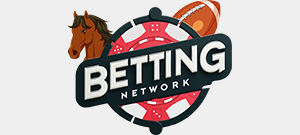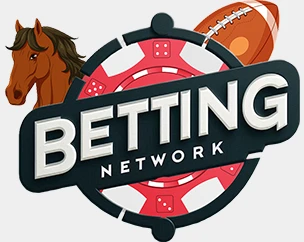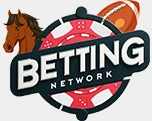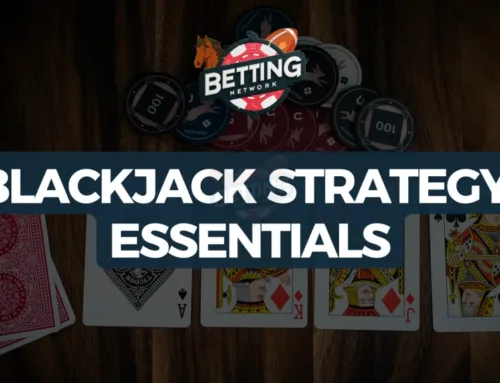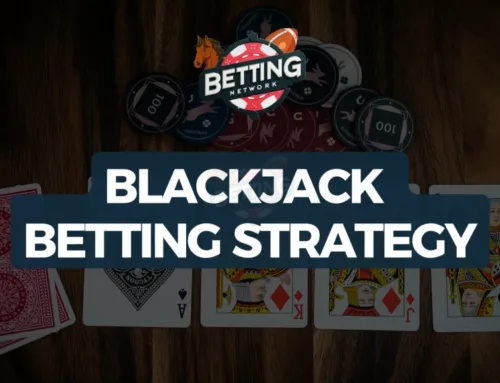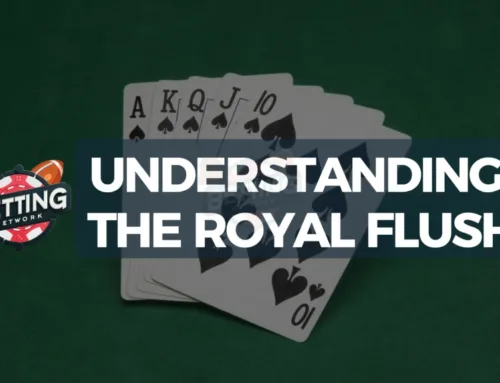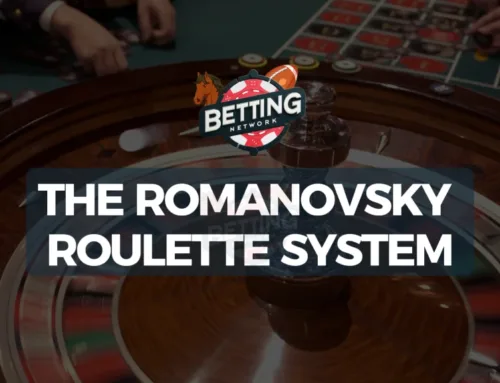Short Answer: Yes, it’s legal. Individuals in California can play online poker for real money! Stick around for the longer version with all the details and laws involved.

Diving Into Online Poker in California
California is a state known for its sun-kissed beaches, high taxes and vague legality of online poker. Every year a new legislation rolls around to make things just a tiny bit more confusing and unclear for the average joe.
Despite being a hotspot for gamblers and home to some of the most iconic casinos, the whole online poker deal is as clear as mud. Trying to explain folks why you can visit a casino, but can’t slap on your favorite jammies and play poker online is complicated to say the least.
- By the way: If you’re looking to turn a few bucks into serious winnings through online poker, we have a must-know post covering tips, strategies and different approaches (on top of the basics) so don’t miss out on it!
Anyways let’s break it down, shall we?
Is Online Poker Legal in California? The Puzzle of Legal Status
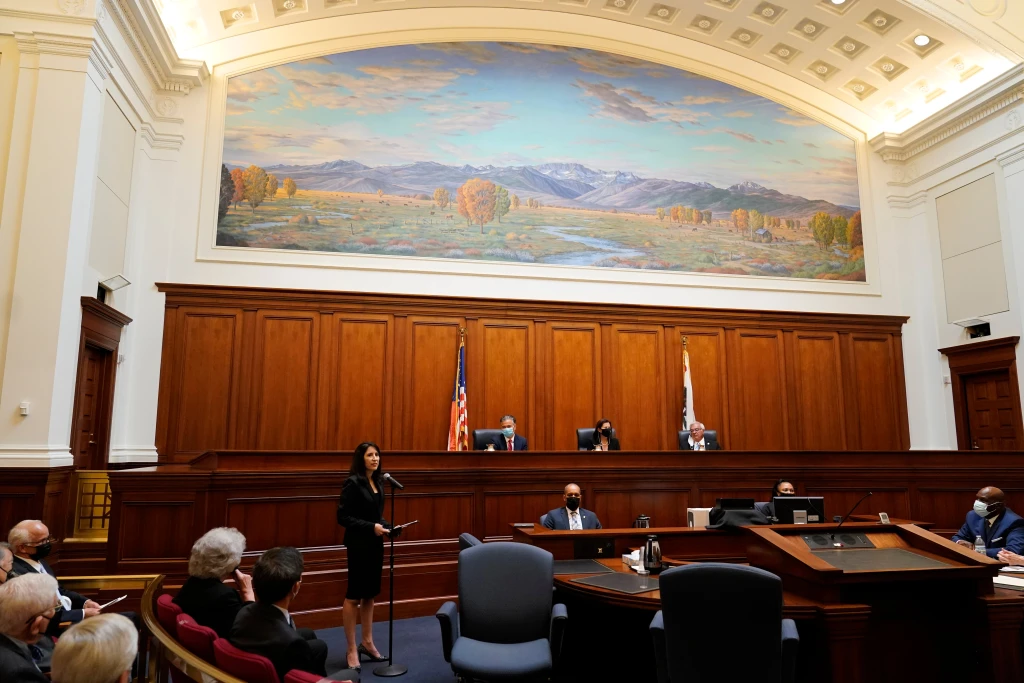
You’d think a state that’s all about pushing boundaries would be upfront about online poker, right? Wrong. California’s got this way of keeping everyone guessing, making it a real brain teaser for players and law buffs alike.
California is all about pushing boundaries and having an open mind about all sorts of things, so you’d think they’d cut online poker some slack, right? Wrong.
California’s got this way of keeping everyone guessing because they haven’t really stopped to specifically mention online poker.
Essentially, the online poker industry itself is not regulated in California. This leads to a sprawling underground poker scene with all sorts of unregulated card rooms popping for the last decades. Online poker is a bit different though, it’s all about going for trusted and reputable sites that won’t close your account and take your funds without a single explanation.
Some prefer to use cryptos for deposits and withdrawals as a safety net, but as it stands, it’s not needed. Legally, you’re able to play online poker for real money, and it ultimately comes down to who you’d trust your personal information with.
Getting to where we are today took a while, so if you’re interested in the legal aspect of this whole thing, then let’s get to it,
Online Poker: In the Shadows
Clear as day in some places, in California, the rules (or lack thereof) for online poker leave players wandering through a fog. It’s neither here nor there – kind of like being told to “pick a card, any card,” without knowing if you’re part of a magic trick or a poker game. It was this way for quite a while too!
You’d get a different response depending on the day, with most urging you to play it safe (turn off the PC and get your butt to a casino). Others just told you not to overthink it because they haven’t gotten banned (yet) from their favorite online poker platform.
Without the state’s seal of approval, online poker in California is a bit like an underground club – everyone knows about it, but nobody talks about it in broad daylight. It might feel exciting for a week but then it just becomes annoying, and everytime you log you’re wondering if you’ll get that dreaded “you’ve been banned” message. For the longest time, people just avoided it.
California’s Poker Saga: From Gold Rush to Digital Rush

Picture this – the year is 1849, gold fever is in the air, and poker is the new gold. Back in the day, miners weren’t just sifting through rivers for gold; they were also dealing cards in dimly lit rooms, betting their newfound fortunes on the flip of a card. What’s there to do after work outside of hitting the bars and relaxing anyway?
It’s a surefire way to double your measly salary into something that will actually get you somewhere. Today, you want to double your salary to keep up with rent and inflation, so I guess much hasn’t changed. Sorry, things got a bit gloomy there. Let’s get back to the topic at hand.
Legislative Hustle: The Battle in the Bills
Imagine trying to fit a square peg in a round hole—that’s been the vibe with trying to pass online poker legislation in New York. With eleven attempts that didn’t quite hit the mark, the commitment to making online poker legal is clear, but the path is littered with obstacles.
The bill A1380 stepping into the spotlight in 2023 was like a fresh deck in the game. With proposals for a 15% tax rate and a hefty $10 million licensing fee for operators, it showed that New York isn’t playing small ball.
Things seem to be moving forward, but at a snail’s pace. Legislators generate hype around their proposals, and seem to have the votes to go through. Then, they reconvene a year later and decide it’s not time to have casinos in New York. It’s maddening.
The Law Steps In
Fast forward a bit, and by the 1860s, California decided it was time to rein in the wild gambling spirit. Laws were put in place to curb the gambling frenzy, putting a damper on poker games and other betting activities.
But you know poker – it’s like water; it always finds a way. Prohibited activities have a way of spawning black markets too.
Cardrooms: The Loophole Lifeline
Enter the Cardrooms, California’s clever workaround to keep poker alive. These joints operated in a gray zone that local laws created due to incompetence or sneaky lobbying. With just enough wiggle room, certain cardrooms gained notoriety over time. They offered safety, an iron fist against would-be cheaters, and tremendous convenience and perks to regulars.
Cardrooms: Keeping the Poker Dream Alive
Cardrooms have been the unsung heroes of California’s poker scene, a beacon for card aficionados in a sea of legal restrictions. They’ve kept the poker flame burning, offering a spot for folks to gather, bluff, and call in the face of ever-tightening laws. Poker legends were born and thrived in these popular spots, and many went on to greater things in the WSOP and other major venues.
In retrospect, it’s a tale as old as time. Government seeks to suppress a popular activity, and a black market for it is born. Many entrepeneurs are ready to take advantage of the grey areas and make fortunes thanks to unenforceable and archaic laws and prohibitions.
The story of Cardrooms is a microcosm of poker in California, one that survived the ongoing dance between regulation and recreation. Poker remained a staple of the Golden State’s identity and today, it’s a source of entertainment and joy for people that want to hone their skills from the comfort of their own home.
FAQs About Online Poker in California
Is the online poker industry regulated in California?
No, the online poker industry is not currently regulated in California. While there has been significant discussion and a positive attitude towards the introduction of a regulated industry, no concrete steps have been taken to establish one. However, many offshore platforms offer services to California residents legally.
How come a state with 40 million people has no regulated poker industry?
The main challenge is the popularity of the live poker game within the state. The live poker industry, which benefits significantly from the current setup, is likely to lose out if online poker were regulated at the state level.
Were there any previous attempts to legalize online poker in California?
Yes, there have been several attempts in the past decade to legalize online poker in California. As of 2024, it’s finally legal to play online poker for real money in California.
Did the Santa Ysabel Tribe try to set up an online poker operation?
Yes, the Santa Ysabel Tribe attempted to establish an online poker operation with PrivateTable.com, aiming to offer real cash games eventually. However, legal challenges culminated in a 2018 Court of Appeals ruling against their online operations.
Can I play online poker for real money in California?
Yes, individuals in California can play online poker for real money. While running a game for profit is illegal, playing online poker in the privacy of one’s home is not prohibited by law.
Is there an age limit for gambling in California?
Yes, the age limit for gambling varies depending on the setting:
- For land-based casinos, individuals must be 21 or older.
- For online play, the minimum age is 18, reflecting the legal age of majority in California.
Can I run an online poker platform in California?
Running an online poker platform from within California is illegal. Operators in the state are licensed offshore, and attempting to establish a local online poker room can lead to legal consequences.
What is California Lowball?
California Lowball is a poker variant akin to 5 card draw where the objective is to make the lowest possible hand. This game, which includes a joker as a wild card, was popular in California card rooms during the 1970s.
Is there a game called San Francisco Poker?
Yes, San Francisco Poker is a version of seven-card stud, available in high or low variations. The game involves splitting the pot between the highest hand and the highest or lowest heart, depending on the version played.
What about Gardena Jackpots?
Also known as ‘Jackpots’ or ‘Jacks to Open,’ this game adds a joker to the deck as a ‘bug’ or wild card, used to complete flushes or straights, or as an ace. This game was once prevalent but is no longer found in casinos.
Can I host a legal home game in California?
Yes, hosting a home poker game is legal in California, provided no profit is made from the operation of the game. Betting limits are at the discretion of the participants, with no legal restrictions on the stakes.
Short Answer: Yes, it’s legal. Individuals in California can play online poker for real money! Stick around for the longer version with all the details and laws involved.

Diving Into Online Poker in California
California is a state known for its sun-kissed beaches, high taxes and vague legality of online poker. Every year a new legislation rolls around to make things just a tiny bit more confusing and unclear for the average joe.
Despite being a hotspot for gamblers and home to some of the most iconic casinos, the whole online poker deal is as clear as mud. Trying to explain folks why you can visit a casino, but can’t slap on your favorite jammies and play poker online is complicated to say the least.
- By the way: If you’re looking to turn a few bucks into serious winnings through online poker, we have a must-know post covering tips, strategies and different approaches (on top of the basics) so don’t miss out on it!
Anyways let’s break it down, shall we?
The Puzzle of Legal Status

You’d think a state that’s all about pushing boundaries would be upfront about online poker, right? Wrong. California’s got this way of keeping everyone guessing, making it a real brain teaser for players and law buffs alike.
California is all about pushing boundaries and having an open mind about all sorts of things, so you’d think they’d cut online poker some slack, right? Wrong.
California’s got this way of keeping everyone guessing because they haven’t really stopped to specifically mention online poker.
Essentially, the online poker industry itself is not regulated in California. This leads to a sprawling underground poker scene with all sorts of unregulated card rooms popping for the last decades. Online poker is a bit different though, it’s all about going for trusted and reputable sites that won’t close your account and take your funds without a single explanation.
Some prefer to use cryptos for deposits and withdrawals as a safety net, but as it stands, it’s not needed. Legally, you’re able to play online poker for real money, and it ultimately comes down to who you’d trust your personal information with.
Getting to where we are today took a while, so if you’re interested in the legal aspect of this whole thing, then let’s get to it,
Online Poker: In the Shadows
Clear as day in some places, in California, the rules (or lack thereof) for online poker leave players wandering through a fog. It’s neither here nor there – kind of like being told to “pick a card, any card,” without knowing if you’re part of a magic trick or a poker game. It was this way for quite a while too!
You’d get a different response depending on the day, with most urging you to play it safe (turn off the PC and get your butt to a casino). Others just told you not to overthink it because they haven’t gotten banned (yet) from their favorite online poker platform.
Without the state’s seal of approval, online poker in California is a bit like an underground club – everyone knows about it, but nobody talks about it in broad daylight. It might feel exciting for a week but then it just becomes annoying, and everytime you log you’re wondering if you’ll get that dreaded “you’ve been banned” message. For the longest time, people just avoided it.
California’s Poker Saga: From Gold Rush to Digital Rush

Picture this – the year is 1849, gold fever is in the air, and poker is the new gold. Back in the day, miners weren’t just sifting through rivers for gold; they were also dealing cards in dimly lit rooms, betting their newfound fortunes on the flip of a card. What’s there to do after work outside of hitting the bars and relaxing anyway?
It’s a surefire way to double your measly salary into something that will actually get you somewhere. Today, you want to double your salary to keep up with rent and inflation, so I guess much hasn’t changed. Sorry, things got a bit gloomy there. Let’s get back to the topic at hand.
Legislative Hustle: The Battle in the Bills
Imagine trying to fit a square peg in a round hole—that’s been the vibe with trying to pass online poker legislation in New York. With eleven attempts that didn’t quite hit the mark, the commitment to making online poker legal is clear, but the path is littered with obstacles.
The bill A1380 stepping into the spotlight in 2023 was like a fresh deck in the game. With proposals for a 15% tax rate and a hefty $10 million licensing fee for operators, it showed that New York isn’t playing small ball.
Things seem to be moving forward, but at a snail’s pace. Legislators generate hype around their proposals, and seem to have the votes to go through. Then, they reconvene a year later and decide it’s not time to have casinos in New York. It’s maddening.
The Law Steps In
Fast forward a bit, and by the 1860s, California decided it was time to rein in the wild gambling spirit. Laws were put in place to curb the gambling frenzy, putting a damper on poker games and other betting activities.
But you know poker – it’s like water; it always finds a way. Prohibited activities have a way of spawning black markets too.
Cardrooms: The Loophole Lifeline
Enter the Cardrooms, California’s clever workaround to keep poker alive. These joints operated in a gray zone that local laws created due to incompetence or sneaky lobbying. With just enough wiggle room, certain cardrooms gained notoriety over time. They offered safety, an iron fist against would-be cheaters, and tremendous convenience and perks to regulars.
Cardrooms: Keeping the Poker Dream Alive
Cardrooms have been the unsung heroes of California’s poker scene, a beacon for card aficionados in a sea of legal restrictions. They’ve kept the poker flame burning, offering a spot for folks to gather, bluff, and call in the face of ever-tightening laws. Poker legends were born and thrived in these popular spots, and many went on to greater things in the WSOP and other major venues.
In retrospect, it’s a tale as old as time. Government seeks to suppress a popular activity, and a black market for it is born. Many entrepeneurs are ready to take advantage of the grey areas and make fortunes thanks to unenforceable and archaic laws and prohibitions.
The story of Cardrooms is a microcosm of poker in California, one that survived the ongoing dance between regulation and recreation. Poker remained a staple of the Golden State’s identity and today, it’s a source of entertainment and joy for people that want to hone their skills from the comfort of their own home.
FAQs About Online Poker in California
Is the online poker industry regulated in California?
No, the online poker industry is not currently regulated in California. While there has been significant discussion and a positive attitude towards the introduction of a regulated industry, no concrete steps have been taken to establish one. However, many offshore platforms offer services to California residents legally.
How come a state with 40 million people has no regulated poker industry?
The main challenge is the popularity of the live poker game within the state. The live poker industry, which benefits significantly from the current setup, is likely to lose out if online poker were regulated at the state level.
Were there any previous attempts to legalize online poker in California?
Yes, there have been several attempts in the past decade to legalize online poker in California. As of 2024, it’s finally legal to play online poker for real money in California.
Did the Santa Ysabel Tribe try to set up an online poker operation?
Yes, the Santa Ysabel Tribe attempted to establish an online poker operation with PrivateTable.com, aiming to offer real cash games eventually. However, legal challenges culminated in a 2018 Court of Appeals ruling against their online operations.
Can I play online poker for real money in California?
Yes, individuals in California can play online poker for real money. While running a game for profit is illegal, playing online poker in the privacy of one’s home is not prohibited by law.
Is there an age limit for gambling in California?
Yes, the age limit for gambling varies depending on the setting:
- For land-based casinos, individuals must be 21 or older.
- For online play, the minimum age is 18, reflecting the legal age of majority in California.
Can I run an online poker platform in California?
Running an online poker platform from within California is illegal. Operators in the state are licensed offshore, and attempting to establish a local online poker room can lead to legal consequences.
What is California Lowball?
California Lowball is a poker variant akin to 5 card draw where the objective is to make the lowest possible hand. This game, which includes a joker as a wild card, was popular in California card rooms during the 1970s.
Is there a game called San Francisco Poker?
Yes, San Francisco Poker is a version of seven-card stud, available in high or low variations. The game involves splitting the pot between the highest hand and the highest or lowest heart, depending on the version played.
What about Gardena Jackpots?
Also known as ‘Jackpots’ or ‘Jacks to Open,’ this game adds a joker to the deck as a ‘bug’ or wild card, used to complete flushes or straights, or as an ace. This game was once prevalent but is no longer found in casinos.
Can I host a legal home game in California?
Yes, hosting a home poker game is legal in California, provided no profit is made from the operation of the game. Betting limits are at the discretion of the participants, with no legal restrictions on the stakes.
Short Answer: Yes, it’s legal. Individuals in California can play online poker for real money! Stick around for the longer version with all the details and laws involved.

Diving Into Online Poker in California
California is a state known for its sun-kissed beaches, high taxes and vague legality of online poker. Every year a new legislation rolls around to make things just a tiny bit more confusing and unclear for the average joe.
Despite being a hotspot for gamblers and home to some of the most iconic casinos, the whole online poker deal is as clear as mud. Trying to explain folks why you can visit a casino, but can’t slap on your favorite jammies and play poker online is complicated to say the least.
- By the way: If you’re looking to turn a few bucks into serious winnings through online poker, we have a must-know post covering tips, strategies and different approaches (on top of the basics) so don’t miss out on it!
Anyways let’s break it down, shall we?
Is Online Poker Legal in California? The Puzzle of Legal Status

You’d think a state that’s all about pushing boundaries would be upfront about online poker, right? Wrong. California’s got this way of keeping everyone guessing, making it a real brain teaser for players and law buffs alike.
California is all about pushing boundaries and having an open mind about all sorts of things, so you’d think they’d cut online poker some slack, right? Wrong.
California’s got this way of keeping everyone guessing because they haven’t really stopped to specifically mention online poker.
Essentially, the online poker industry itself is not regulated in California. This leads to a sprawling underground poker scene with all sorts of unregulated card rooms popping for the last decades. Online poker is a bit different though, it’s all about going for trusted and reputable sites that won’t close your account and take your funds without a single explanation.
Some prefer to use cryptos for deposits and withdrawals as a safety net, but as it stands, it’s not needed. Legally, you’re able to play online poker for real money, and it ultimately comes down to who you’d trust your personal information with.
Getting to where we are today took a while, so if you’re interested in the legal aspect of this whole thing, then let’s get to it,
Online Poker: In the Shadows
Clear as day in some places, in California, the rules (or lack thereof) for online poker leave players wandering through a fog. It’s neither here nor there – kind of like being told to “pick a card, any card,” without knowing if you’re part of a magic trick or a poker game. It was this way for quite a while too!
You’d get a different response depending on the day, with most urging you to play it safe (turn off the PC and get your butt to a casino). Others just told you not to overthink it because they haven’t gotten banned (yet) from their favorite online poker platform.
Without the state’s seal of approval, online poker in California is a bit like an underground club – everyone knows about it, but nobody talks about it in broad daylight. It might feel exciting for a week but then it just becomes annoying, and everytime you log you’re wondering if you’ll get that dreaded “you’ve been banned” message. For the longest time, people just avoided it.
California’s Poker Saga: From Gold Rush to Digital Rush

Picture this – the year is 1849, gold fever is in the air, and poker is the new gold. Back in the day, miners weren’t just sifting through rivers for gold; they were also dealing cards in dimly lit rooms, betting their newfound fortunes on the flip of a card. What’s there to do after work outside of hitting the bars and relaxing anyway?
It’s a surefire way to double your measly salary into something that will actually get you somewhere. Today, you want to double your salary to keep up with rent and inflation, so I guess much hasn’t changed. Sorry, things got a bit gloomy there. Let’s get back to the topic at hand.
Legislative Hustle: The Battle in the Bills
Imagine trying to fit a square peg in a round hole—that’s been the vibe with trying to pass online poker legislation in New York. With eleven attempts that didn’t quite hit the mark, the commitment to making online poker legal is clear, but the path is littered with obstacles.
The bill A1380 stepping into the spotlight in 2023 was like a fresh deck in the game. With proposals for a 15% tax rate and a hefty $10 million licensing fee for operators, it showed that New York isn’t playing small ball.
Things seem to be moving forward, but at a snail’s pace. Legislators generate hype around their proposals, and seem to have the votes to go through. Then, they reconvene a year later and decide it’s not time to have casinos in New York. It’s maddening.
The Law Steps In
Fast forward a bit, and by the 1860s, California decided it was time to rein in the wild gambling spirit. Laws were put in place to curb the gambling frenzy, putting a damper on poker games and other betting activities.
But you know poker – it’s like water; it always finds a way. Prohibited activities have a way of spawning black markets too.
Cardrooms: The Loophole Lifeline
Enter the Cardrooms, California’s clever workaround to keep poker alive. These joints operated in a gray zone that local laws created due to incompetence or sneaky lobbying. With just enough wiggle room, certain cardrooms gained notoriety over time. They offered safety, an iron fist against would-be cheaters, and tremendous convenience and perks to regulars.
Cardrooms: Keeping the Poker Dream Alive
Cardrooms have been the unsung heroes of California’s poker scene, a beacon for card aficionados in a sea of legal restrictions. They’ve kept the poker flame burning, offering a spot for folks to gather, bluff, and call in the face of ever-tightening laws. Poker legends were born and thrived in these popular spots, and many went on to greater things in the WSOP and other major venues.
In retrospect, it’s a tale as old as time. Government seeks to suppress a popular activity, and a black market for it is born. Many entrepeneurs are ready to take advantage of the grey areas and make fortunes thanks to unenforceable and archaic laws and prohibitions.
The story of Cardrooms is a microcosm of poker in California, one that survived the ongoing dance between regulation and recreation. Poker remained a staple of the Golden State’s identity and today, it’s a source of entertainment and joy for people that want to hone their skills from the comfort of their own home.
FAQs About Online Poker in California
Is the online poker industry regulated in California?
No, the online poker industry is not currently regulated in California. While there has been significant discussion and a positive attitude towards the introduction of a regulated industry, no concrete steps have been taken to establish one. However, many offshore platforms offer services to California residents legally.
How come a state with 40 million people has no regulated poker industry?
The main challenge is the popularity of the live poker game within the state. The live poker industry, which benefits significantly from the current setup, is likely to lose out if online poker were regulated at the state level.
Were there any previous attempts to legalize online poker in California?
Yes, there have been several attempts in the past decade to legalize online poker in California. As of 2024, it’s finally legal to play online poker for real money in California.
Did the Santa Ysabel Tribe try to set up an online poker operation?
Yes, the Santa Ysabel Tribe attempted to establish an online poker operation with PrivateTable.com, aiming to offer real cash games eventually. However, legal challenges culminated in a 2018 Court of Appeals ruling against their online operations.
Can I play online poker for real money in California?
Yes, individuals in California can play online poker for real money. While running a game for profit is illegal, playing online poker in the privacy of one’s home is not prohibited by law.
Is there an age limit for gambling in California?
Yes, the age limit for gambling varies depending on the setting:
- For land-based casinos, individuals must be 21 or older.
- For online play, the minimum age is 18, reflecting the legal age of majority in California.
Can I run an online poker platform in California?
Running an online poker platform from within California is illegal. Operators in the state are licensed offshore, and attempting to establish a local online poker room can lead to legal consequences.
What is California Lowball?
California Lowball is a poker variant akin to 5 card draw where the objective is to make the lowest possible hand. This game, which includes a joker as a wild card, was popular in California card rooms during the 1970s.
Is there a game called San Francisco Poker?
Yes, San Francisco Poker is a version of seven-card stud, available in high or low variations. The game involves splitting the pot between the highest hand and the highest or lowest heart, depending on the version played.
What about Gardena Jackpots?
Also known as ‘Jackpots’ or ‘Jacks to Open,’ this game adds a joker to the deck as a ‘bug’ or wild card, used to complete flushes or straights, or as an ace. This game was once prevalent but is no longer found in casinos.
Can I host a legal home game in California?
Yes, hosting a home poker game is legal in California, provided no profit is made from the operation of the game. Betting limits are at the discretion of the participants, with no legal restrictions on the stakes.
Short Answer: Yes, it’s legal. Individuals in California can play online poker for real money! Stick around for the longer version with all the details and laws involved.

Diving Into Online Poker in California
California is a state known for its sun-kissed beaches, high taxes and vague legality of online poker. Every year a new legislation rolls around to make things just a tiny bit more confusing and unclear for the average joe.
Despite being a hotspot for gamblers and home to some of the most iconic casinos, the whole online poker deal is as clear as mud. Trying to explain folks why you can visit a casino, but can’t slap on your favorite jammies and play poker online is complicated to say the least.
- By the way: If you’re looking to turn a few bucks into serious winnings through online poker, we have a must-know post covering tips, strategies and different approaches (on top of the basics) so don’t miss out on it!
Anyways let’s break it down, shall we?
The Puzzle of Legal Status

You’d think a state that’s all about pushing boundaries would be upfront about online poker, right? Wrong. California’s got this way of keeping everyone guessing, making it a real brain teaser for players and law buffs alike.
California is all about pushing boundaries and having an open mind about all sorts of things, so you’d think they’d cut online poker some slack, right? Wrong.
California’s got this way of keeping everyone guessing because they haven’t really stopped to specifically mention online poker.
Essentially, the online poker industry itself is not regulated in California. This leads to a sprawling underground poker scene with all sorts of unregulated card rooms popping for the last decades. Online poker is a bit different though, it’s all about going for trusted and reputable sites that won’t close your account and take your funds without a single explanation.
Some prefer to use cryptos for deposits and withdrawals as a safety net, but as it stands, it’s not needed. Legally, you’re able to play online poker for real money, and it ultimately comes down to who you’d trust your personal information with.
Getting to where we are today took a while, so if you’re interested in the legal aspect of this whole thing, then let’s get to it,
Online Poker: In the Shadows
Clear as day in some places, in California, the rules (or lack thereof) for online poker leave players wandering through a fog. It’s neither here nor there – kind of like being told to “pick a card, any card,” without knowing if you’re part of a magic trick or a poker game. It was this way for quite a while too!
You’d get a different response depending on the day, with most urging you to play it safe (turn off the PC and get your butt to a casino). Others just told you not to overthink it because they haven’t gotten banned (yet) from their favorite online poker platform.
Without the state’s seal of approval, online poker in California is a bit like an underground club – everyone knows about it, but nobody talks about it in broad daylight. It might feel exciting for a week but then it just becomes annoying, and everytime you log you’re wondering if you’ll get that dreaded “you’ve been banned” message. For the longest time, people just avoided it.
California’s Poker Saga: From Gold Rush to Digital Rush

Picture this – the year is 1849, gold fever is in the air, and poker is the new gold. Back in the day, miners weren’t just sifting through rivers for gold; they were also dealing cards in dimly lit rooms, betting their newfound fortunes on the flip of a card. What’s there to do after work outside of hitting the bars and relaxing anyway?
It’s a surefire way to double your measly salary into something that will actually get you somewhere. Today, you want to double your salary to keep up with rent and inflation, so I guess much hasn’t changed. Sorry, things got a bit gloomy there. Let’s get back to the topic at hand.
Legislative Hustle: The Battle in the Bills
Imagine trying to fit a square peg in a round hole—that’s been the vibe with trying to pass online poker legislation in New York. With eleven attempts that didn’t quite hit the mark, the commitment to making online poker legal is clear, but the path is littered with obstacles.
The bill A1380 stepping into the spotlight in 2023 was like a fresh deck in the game. With proposals for a 15% tax rate and a hefty $10 million licensing fee for operators, it showed that New York isn’t playing small ball.
Things seem to be moving forward, but at a snail’s pace. Legislators generate hype around their proposals, and seem to have the votes to go through. Then, they reconvene a year later and decide it’s not time to have casinos in New York. It’s maddening.
The Law Steps In
Fast forward a bit, and by the 1860s, California decided it was time to rein in the wild gambling spirit. Laws were put in place to curb the gambling frenzy, putting a damper on poker games and other betting activities.
But you know poker – it’s like water; it always finds a way. Prohibited activities have a way of spawning black markets too.
Cardrooms: The Loophole Lifeline
Enter the Cardrooms, California’s clever workaround to keep poker alive. These joints operated in a gray zone that local laws created due to incompetence or sneaky lobbying. With just enough wiggle room, certain cardrooms gained notoriety over time. They offered safety, an iron fist against would-be cheaters, and tremendous convenience and perks to regulars.
Cardrooms: Keeping the Poker Dream Alive
Cardrooms have been the unsung heroes of California’s poker scene, a beacon for card aficionados in a sea of legal restrictions. They’ve kept the poker flame burning, offering a spot for folks to gather, bluff, and call in the face of ever-tightening laws. Poker legends were born and thrived in these popular spots, and many went on to greater things in the WSOP and other major venues.
In retrospect, it’s a tale as old as time. Government seeks to suppress a popular activity, and a black market for it is born. Many entrepeneurs are ready to take advantage of the grey areas and make fortunes thanks to unenforceable and archaic laws and prohibitions.
The story of Cardrooms is a microcosm of poker in California, one that survived the ongoing dance between regulation and recreation. Poker remained a staple of the Golden State’s identity and today, it’s a source of entertainment and joy for people that want to hone their skills from the comfort of their own home.
FAQs About Online Poker in California
Is the online poker industry regulated in California?
No, the online poker industry is not currently regulated in California. While there has been significant discussion and a positive attitude towards the introduction of a regulated industry, no concrete steps have been taken to establish one. However, many offshore platforms offer services to California residents legally.
How come a state with 40 million people has no regulated poker industry?
The main challenge is the popularity of the live poker game within the state. The live poker industry, which benefits significantly from the current setup, is likely to lose out if online poker were regulated at the state level.
Were there any previous attempts to legalize online poker in California?
Yes, there have been several attempts in the past decade to legalize online poker in California. As of 2024, it’s finally legal to play online poker for real money in California.
Did the Santa Ysabel Tribe try to set up an online poker operation?
Yes, the Santa Ysabel Tribe attempted to establish an online poker operation with PrivateTable.com, aiming to offer real cash games eventually. However, legal challenges culminated in a 2018 Court of Appeals ruling against their online operations.
Can I play online poker for real money in California?
Yes, individuals in California can play online poker for real money. While running a game for profit is illegal, playing online poker in the privacy of one’s home is not prohibited by law.
Is there an age limit for gambling in California?
Yes, the age limit for gambling varies depending on the setting:
- For land-based casinos, individuals must be 21 or older.
- For online play, the minimum age is 18, reflecting the legal age of majority in California.
Can I run an online poker platform in California?
Running an online poker platform from within California is illegal. Operators in the state are licensed offshore, and attempting to establish a local online poker room can lead to legal consequences.
What is California Lowball?
California Lowball is a poker variant akin to 5 card draw where the objective is to make the lowest possible hand. This game, which includes a joker as a wild card, was popular in California card rooms during the 1970s.
Is there a game called San Francisco Poker?
Yes, San Francisco Poker is a version of seven-card stud, available in high or low variations. The game involves splitting the pot between the highest hand and the highest or lowest heart, depending on the version played.
What about Gardena Jackpots?
Also known as ‘Jackpots’ or ‘Jacks to Open,’ this game adds a joker to the deck as a ‘bug’ or wild card, used to complete flushes or straights, or as an ace. This game was once prevalent but is no longer found in casinos.
Can I host a legal home game in California?
Yes, hosting a home poker game is legal in California, provided no profit is made from the operation of the game. Betting limits are at the discretion of the participants, with no legal restrictions on the stakes.
